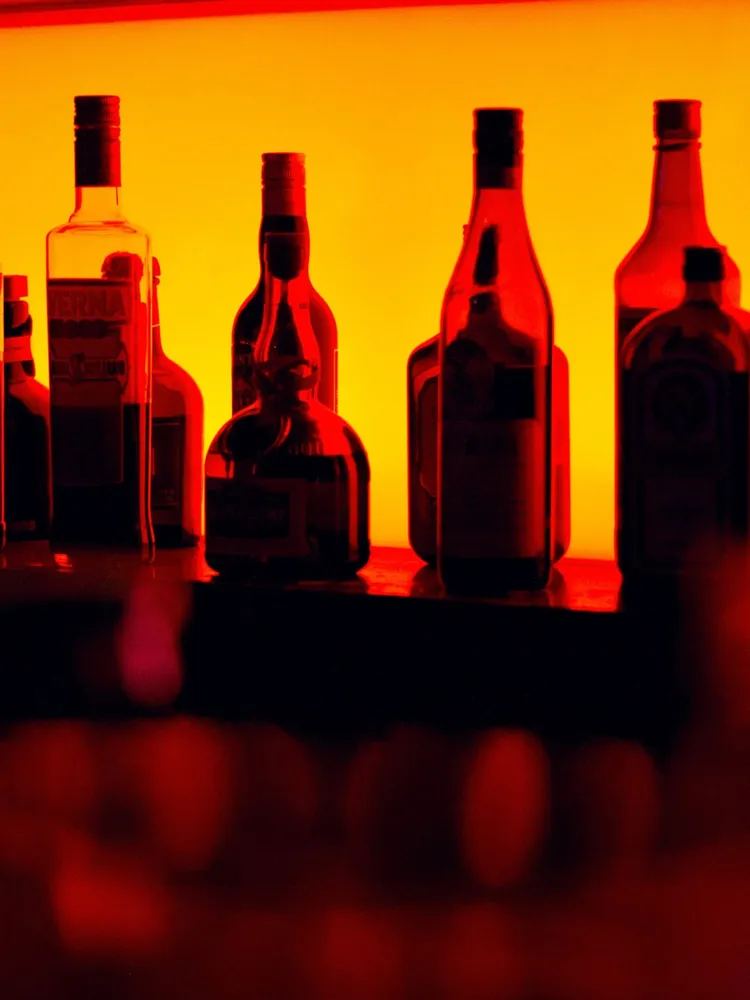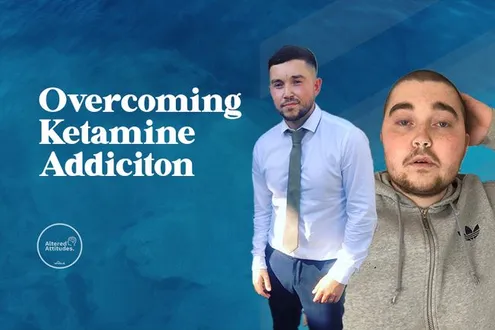Alcohol addiction, also known as alcoholism, is a disease that affects people from all walks of life. The disease causes chemical changes in the brain that affect impulse control. Alcohol addiction can present in a variety of ways. The severity of the disease, the frequency of consumption and the amount of alcohol consumed vary from person to person. Irrespective of the form the addiction takes, someone typically has an alcohol addiction if they rely heavily on alcohol and are unable to remain sober for an extended period of time.

Many terms that refer to an alcohol problem are used interchangeably. However, there are distinctions between the different terms and what they mean. The term alcohol abuse means you are using alcohol in a dangerous manner; to the extent that it may be causing problems in your life. Abuse suggests that you are neither physically nor psychologically addicted to alcohol.
Alcohol addiction usually refers to a physical dependence on alcohol but it can also include a psychological addiction. If you have not yet become physically addicted to alcohol, it may be possible to change your behaviour and drink safely again at some point in the future. For someone already addicted to alcohol, abstinence may be the only real option.
You may be wondering whether your drinking has crossed the line into becoming a problem. If any of the following warning signs seem familiar, it may be time to make some changes.
- You may experience occasions when you’ve ended up drinking more than you thought you would or for longer than you’d planned. While this might not seem like a big deal if it happens infrequently, it might still be a warning sign that you have trouble controlling yourself while drinking. Keep an eye on the amount of time you spend drinking, and the amount of time it takes to recover.
- You may notice that your tolerance has increased and you need more booze to get the same buzz. Over time, the brain adapts to alcohol and becomes less sensitive to its effects. Similarly, craving alcohol can be another indication of an issue.
- Your drinking may have started to edge out activities that you used to enjoy. Similarly, it may be preventing you from keeping up with responsibilities at home, work or school.
- If drinking has caused friction in your relationships or you have engaged in risky behaviours, yet you continue to drink, it may be time to change your habits and get your relationships back on track.
- When the effects of alcohol wear off, you may experience a range of withdrawal symptoms. Alcohol changes your brain chemistry. When you drink heavily over a long period of time, the brain tries to adapt. If you stop drinking, the brain has to readjust the chemical imbalance which creates uncomfortable physical and emotional sensations.
- Your alcohol consumption may be affecting your health. If this is the case and you still continue to drink, it may be time to seek help. If you have tried to cut back or quit but are unable to do so alone, admitting you have a problem is the first step.
From the occasional drink to full-blown addiction, what causes someone to develop an alcohol dependency? Alcoholism is the result of a combination of different factors; some of which may be beyond your control.

Some people are able to limit the amount of alcohol they consume, while others feel a strong impulse to keep going. Alcohol induces feelings of pleasure which trigger the brain’s reward centre and encourage repetition of the behaviour.
Neuroscience has shown that people have varying levels of ability and brain function to control impulsive urges. If these genes are passed down through generations, family members are more prone to developing drinking problems.

Everyone deals with certain situations in their own unique way. However, different psychological factors can increase the chances of drinking heavily. Alcohol is often used to suppress feelings and relieve the symptoms of a range of mental health issues. From depression to anxiety, the more you turn to alcohol to ease emotional pain or trauma, the more your body becomes tolerant to it and relies on its effects. Over time, self-medicating with alcohol can become habitual and can co-occur with a mental health disorder.

Spending time around people who drink heavily or abuse alcohol can influence you to do the same. Family plays a big part in the likelihood of someone developing an alcohol addiction. Children who are exposed to alcohol abuse at a young age are more at risk of developing patterns of problem drinking.
Some people turn to alcohol to relieve stress. Work culture or a demanding job can contribute to increased alcohol consumption. Peer pressure can also cause you to participate in activities in which you wouldn’t normally partake.










